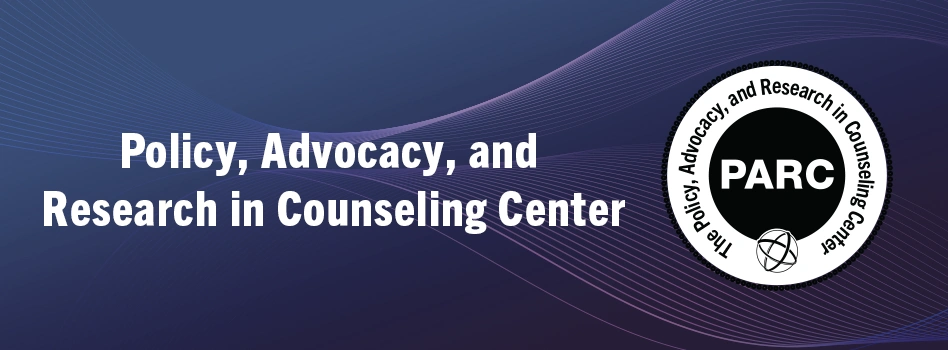
“PARC is designed really to erase the gap between evidence-based research and policy,” says Banks. “We want to ensure that counselors’ voices are not only heard, but they're influential in shaping the future of the counselling profession. In essence, it’s a call to action to the counseling community. We know that counselors are doing amazing research already. We know that there's research that needs to be done, and we know that we already have the counselors in place throughout the nation to get the job done. We want to partner with counselors to conduct this research.”
PARC will provide funding, consultation, facilitation, and other resources to counselor researchers and advocates to complete the circle from practice, to research, to policy. PARC has already begun identifying research needs and collaborating with counselors to address these, Banks explains.
“I'm currently in the process of working with some counselors on research that we're going to begin in January of 2025. Counselors have been in the Medicare system as providers for almost a year now. What does that look? What's missing? Where are the gaps? How can we help the Centers for Medicare & Medicaid Services to ensure that we're serving the people that need help and assistance at the highest level possible? We don't really have those answers now, but we're going to get them.”
Banks and PARC are looking ahead at numerous other issues, as well. PARC’s mission is not just to facilitate research on important mental health issues, but to provide guidance and actionable plans to counselors and policymakers.
“There's a workforce analysis that needs to be done to see where the profession is, where we need to go, and how we can fill those gaps,” says Banks. “Suicide is increasing in the military. Suicide is increasing when it comes to Black men and Black boys. Why is this happening? Where are the gaps? We need to find out how we can actually help the profession grow with the need so that the access gap closes and doesn't widen. That’s something that this research can do, not just for counselors, but for legislators that are making the decisions on funding.”
Banks’ plans for PARC may seem lofty, but his optimism is, appropriately enough, based on tested principles. He points to the counseling profession’s successes on issues such as Medicare inclusion, military hiring, and Department of Veterans Affairs hiring. These issues took many years of advocacy, but that’s a timeframe PARC will serve to expedite.
“How we got to ‘yes’ in those areas was putting together teams of people, counselors, experts in government affairs and policy, bringing them together and providing the appropriate research and analysis. And once we did that, it allowed legislators and regulators to come to us and ask us the right questions and for us to get them those answers so they can actually support the profession. We’re continuing that, and we’re ramping it up and doing it at a higher level.”
To learn how you can become involved as a researcher or advocate, contact PARC@NBCC.org.